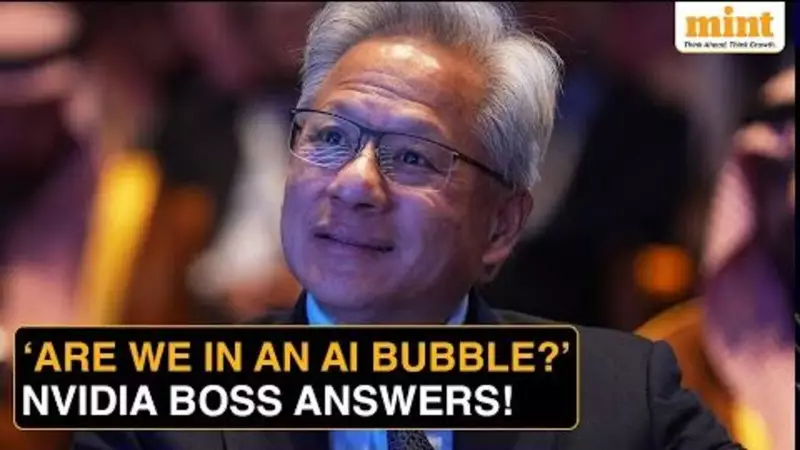
In a bold statement challenging growing concerns in the technology sector, Nvidia CEO Jensen Huang has firmly rejected the possibility of an artificial intelligence bubble. The tech leader presented a detailed three-point rebuttal explaining why the current AI boom represents genuine transformation rather than speculative hype.
The Core Argument: Beyond the Chatbot Hype
Speaking to CNBC, Huang addressed the widespread talk about an AI bubble head-on. "There's been a lot of talk about an AI bubble," Huang stated. "From our vantage point we see something very different." The Nvidia chief executive emphasized that the fundamental shift happening beneath surface-level AI applications is far more significant than just chatbots.
According to Huang, what we're witnessing is a complete transformation in how the world approaches computing. This paradigm shift is creating unprecedented demand for GPUs, the specialized processors that Nvidia manufactures and that have become essential for AI development and deployment.
Huang's Three-Point Case Against AI Bubble
1. The End of Moore's Law Era
Huang's first argument centers on the conclusion of Moore's Law, the long-standing principle that predicted regular improvements in CPU performance and cost efficiency. The Nvidia CEO declared that this era has effectively run its course, forcing industries to seek alternative computing solutions.
Major sectors including banking, e-commerce, and advertising recommendation systems are now transitioning from traditional CPU-dependent infrastructure to GPU-accelerated computing. This fundamental architectural shift represents more than temporary experimentation—it's a permanent migration driving sustained demand for Nvidia's chips.
2. The Generative AI Revolution in Recommendation Systems
Huang's second point highlights the transformation of modern recommendation systems—the technology that determines what content, products, or advertisements users see next on digital platforms. These systems, previously running efficiently on conventional processors, are now embracing generative AI capabilities.
This evolution from simple algorithmic recommendations to intelligent, generative systems requires substantially more computing power, specifically the parallel processing capabilities that GPUs provide. The shift represents another structural change in technology infrastructure that supports continued GPU demand.
3. The Rise of Agentic AI Systems
The third pillar of Huang's argument points to the emergence of what he calls 'agentic AI' systems like ChatGPT, Gemini, and Grok. Unlike passive tools, these advanced AI systems can make decisions and take actions on behalf of users, creating exponential demand for computing resources.
Huang explained that when considering all these trends together, "you'll come to the conclusion that in fact, what is leftover to fuel that revolutionary agentic AI is not only substantially less than you thought – and all of it justified." This perspective suggests that current investment levels are not only reasonable but necessary to support the AI revolution.
Contrasting Views from Other Tech Leaders
Huang's optimistic assessment comes amid growing concerns within the AI industry about potential overinvestment. Several other prominent tech executives have expressed more cautious views about the sustainability of current AI enthusiasm.
Google CEO Sundar Pichai recently acknowledged the possibility of an AI bubble in an interview with BBC. "I think no company is going to be immune, including us," the Alphabet CEO stated, suggesting that even major players could be affected by market corrections.
Similarly, OpenAI CEO Sam Altman and Meta CEO Mark Zuckerberg have both admitted the potential for an impending AI bubble, drawing comparisons to the dot-com bubble that reshaped the internet industry in the early 2000s. These contrasting perspectives highlight the ongoing debate about whether current AI investments represent sustainable growth or speculative excess.
The divergence in views between hardware-focused leaders like Huang and application-focused executives underscores the complex dynamics shaping the AI industry's future. While some see unprecedented opportunity, others caution about repeating historical patterns of technology hype cycles.





